-
 Bitcoin
Bitcoin $117700
-1.00% -
 Ethereum
Ethereum $4458
-3.91% -
 XRP
XRP $3.119
0.14% -
 Tether USDt
Tether USDt $1.001
-0.02% -
 BNB
BNB $836.6
-1.56% -
 Solana
Solana $189.5
-3.90% -
 USDC
USDC $0.9998
-0.02% -
 Dogecoin
Dogecoin $0.2335
1.29% -
 Cardano
Cardano $0.9642
1.51% -
 TRON
TRON $0.3539
-1.19% -
 Hyperliquid
Hyperliquid $47.41
-1.84% -
 Chainlink
Chainlink $21.92
-3.28% -
 Stellar
Stellar $0.4286
-0.23% -
 Sui
Sui $3.724
-3.29% -
 Bitcoin Cash
Bitcoin Cash $594.8
-0.78% -
 Ethena USDe
Ethena USDe $1.001
0.04% -
 Hedera
Hedera $0.2501
-2.06% -
 Avalanche
Avalanche $23.96
-4.87% -
 Litecoin
Litecoin $119.0
-2.32% -
 Toncoin
Toncoin $3.473
0.82% -
 UNUS SED LEO
UNUS SED LEO $9.596
0.17% -
 Shiba Inu
Shiba Inu $0.00001301
-0.39% -
 Uniswap
Uniswap $11.03
-0.25% -
 Polkadot
Polkadot $3.935
-2.62% -
 Dai
Dai $1.000
0.01% -
 Bitget Token
Bitget Token $4.564
-1.76% -
 Cronos
Cronos $0.1512
-4.11% -
 Ethena
Ethena $0.7306
-1.09% -
 Pepe
Pepe $0.00001087
-2.68% -
 Aave
Aave $300.2
-4.00%
What should I do if the MetaMask fee is too high? How to optimize the Gas settings?
To optimize MetaMask fees, adjust Gas settings based on network conditions, use timing strategies, and consider Layer 2 solutions for lower costs.
May 14, 2025 at 07:21 pm
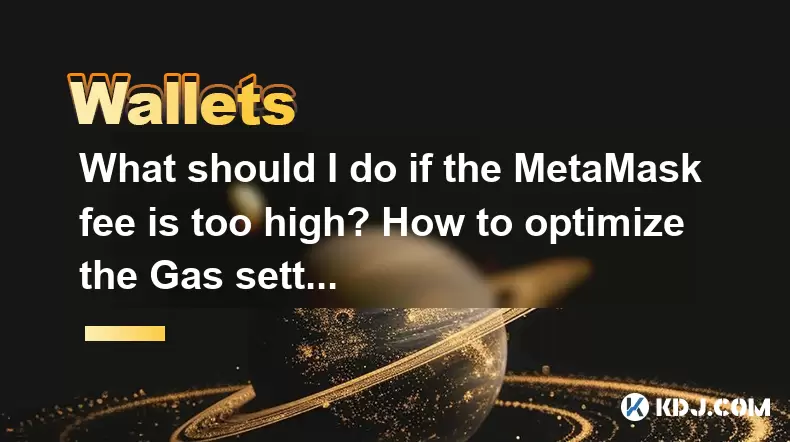
If you find that the MetaMask fee is too high, there are several strategies you can use to optimize your Gas settings and reduce costs. Understanding how Gas works and how to adjust your settings can help you save money on transaction fees. Let's dive into the details of how you can manage and optimize your Gas settings effectively.
Understanding Gas and Gas Fees
Gas is the unit of measurement for the computational effort required to perform transactions and execute smart contracts on the Ethereum network. Gas fees are the payments made by users to compensate for the computing energy required to process and validate transactions on the blockchain. The total fee you pay for a transaction is calculated by multiplying the Gas limit (the maximum amount of Gas you're willing to use for your transaction) by the Gas price (the amount of Ether you're willing to pay per unit of Gas).
Factors Affecting Gas Fees
Several factors influence the Gas fees you pay:
- Network Congestion: When the Ethereum network is busy, Gas prices tend to be higher due to increased demand for transaction processing.
- Transaction Complexity: More complex transactions, such as those involving smart contracts, require more Gas and thus higher fees.
- Gas Price: The amount of Ether you're willing to pay per unit of Gas directly affects the total fee. Higher Gas prices can lead to faster transaction processing but at a higher cost.
How to Check Current Gas Prices
Before adjusting your Gas settings, it's crucial to check the current Gas prices. You can do this within MetaMask or use external tools:
- Within MetaMask: When you're about to send a transaction, MetaMask will show you the estimated Gas fee based on current network conditions.
- External Tools: Websites like Etherscan and EthGasStation provide real-time Gas price data and recommendations.
Adjusting Gas Settings in MetaMask
To optimize your Gas settings in MetaMask, follow these steps:
- Open MetaMask: Launch the MetaMask extension or mobile app.
- Initiate a Transaction: Click on "Send" or interact with a dApp that requires a transaction.
- Edit Gas Settings: Before confirming the transaction, click on "Edit" next to the Gas fee estimate.
- Adjust Gas Price: You can manually adjust the Gas price to a lower amount. Be aware that a lower Gas price might result in a slower transaction confirmation.
- Set Gas Limit: If you're familiar with the transaction's complexity, you can also adjust the Gas limit. However, setting it too low might cause the transaction to fail.
- Confirm Transaction: Once you're satisfied with the settings, confirm the transaction.
Strategies to Optimize Gas Fees
Here are some strategies to help you optimize your Gas fees:
- Use Gas Price Estimators: Tools like EthGasStation provide recommended Gas prices for different transaction speeds (e.g., fast, average, slow). Adjusting your Gas price based on these recommendations can help you find the right balance between cost and speed.
- Timing Your Transactions: Gas prices tend to be lower during off-peak hours. Consider scheduling your transactions during less busy times, such as late at night or early in the morning.
- Batch Transactions: If you're interacting with a dApp that allows it, you can batch multiple transactions into a single one, reducing the overall Gas cost.
- Use Layer 2 Solutions: Platforms like Optimism and Arbitrum offer lower Gas fees by processing transactions off the main Ethereum chain and then settling them on-chain.
- Leverage Gas Tokens: Gas tokens like CHI allow you to "store" Gas at a lower price and use it when Gas prices are higher, potentially saving you money.
Monitoring and Adjusting Gas Settings
It's important to monitor your Gas settings and adjust them based on network conditions. Here's how you can do it effectively:
- Regularly Check Gas Prices: Use tools like Etherscan to stay updated on the current Gas prices and adjust your settings accordingly.
- Experiment with Different Settings: Try different Gas prices and limits to see what works best for your specific transactions. Keep in mind that lower Gas prices might result in longer confirmation times.
- Stay Informed: Follow Ethereum-related news and updates, as changes in the network can affect Gas prices and transaction speeds.
Frequently Asked Questions
Q: Can I set the Gas price to zero in MetaMask?
A: No, setting the Gas price to zero is not possible in MetaMask. The Gas price must be set to a value that miners will accept to process your transaction. Setting it too low might result in your transaction never being processed.
Q: How do I know if my transaction failed due to low Gas settings?
A: If your transaction fails due to low Gas settings, you'll typically see an error message in MetaMask indicating that the transaction ran out of Gas. You can also check the transaction status on Etherscan to see if it was "out of gas."
Q: Are there any risks associated with adjusting Gas settings?
A: Yes, there are risks. Setting the Gas price too low might result in your transaction taking a long time to confirm or never confirming at all. Setting the Gas limit too low can cause your transaction to fail. It's important to find a balance that works for your needs.
Q: Can I use the same Gas settings for all types of transactions?
A: No, different types of transactions may require different Gas settings. Simple transfers might require less Gas than complex smart contract interactions. It's important to adjust your Gas settings based on the specific transaction you're making.
Disclaimer:info@kdj.com
The information provided is not trading advice. kdj.com does not assume any responsibility for any investments made based on the information provided in this article. Cryptocurrencies are highly volatile and it is highly recommended that you invest with caution after thorough research!
If you believe that the content used on this website infringes your copyright, please contact us immediately (info@kdj.com) and we will delete it promptly.
- Kazakhstan's Crypto Leap: Bitcoin ETF and Central Asia's Digital Finance Future
- 2025-08-13 12:45:19
- BlockDAG Presale Blazes Past $371M: Fundraising Frenzy Fuels Crypto Sensation
- 2025-08-13 13:05:21
- Meme Coins: Chasing the 2025 Surge – Which Will Moonshot?
- 2025-08-13 10:25:23
- Bitcoin's Wild Ride: Rally, Pullback, and What's Next
- 2025-08-13 10:25:23
- Bitcoin, Bitmax, and Institutional Demand: A New Era of Crypto Investment
- 2025-08-13 10:45:12
- Solana, ROAM, and Airdrops: What's the Buzz in 2025?
- 2025-08-13 11:35:13
Related knowledge
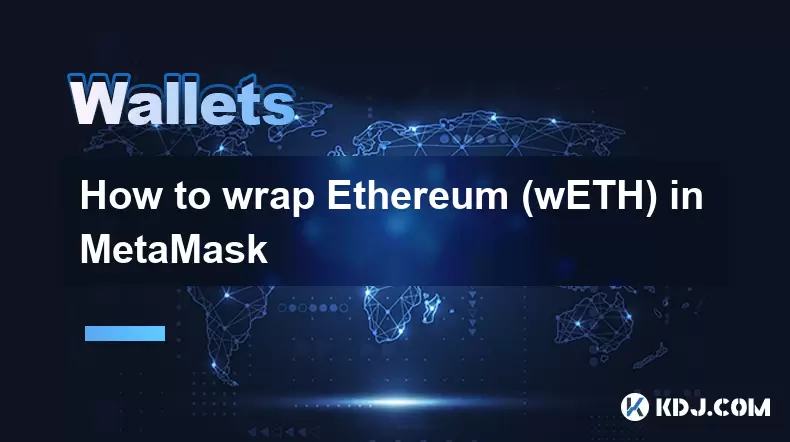
How to wrap Ethereum (wETH) in MetaMask
Aug 13,2025 at 11:36am
Understanding Wrapped Ethereum (wETH)Wrapped Ethereum (wETH) is a tokenized version of native Ethereum (ETH) that conforms to the ERC-20 standard, ena...

How to manage your portfolio in Exodus wallet
Aug 08,2025 at 10:07pm
Understanding the Exodus Wallet InterfaceThe Exodus wallet is a non-custodial cryptocurrency wallet that supports a wide range of digital assets. When...
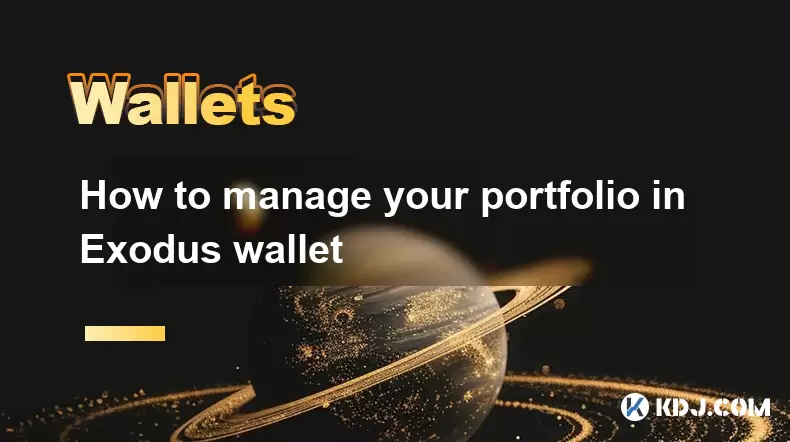
How to manage your portfolio in Exodus wallet
Aug 13,2025 at 11:35am
Understanding the Exodus Wallet InterfaceThe Exodus wallet is a non-custodial cryptocurrency wallet that supports a wide range of digital assets. Upon...

How to reset your MetaMask password
Aug 08,2025 at 01:28pm
Understanding the MetaMask Password Reset ProcessMany users confuse the MetaMask password with the seed phrase or private key, but they serve differen...
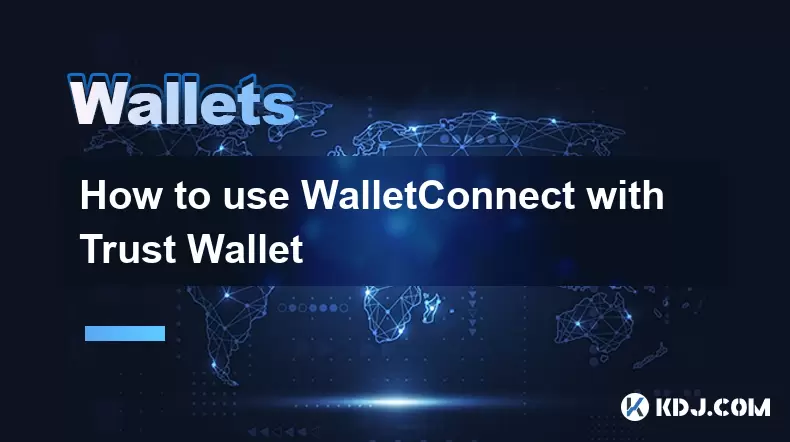
How to use WalletConnect with Trust Wallet
Aug 13,2025 at 01:07am
What Is WalletConnect and Why It Matters for Trust Wallet UsersWalletConnect is an open-source protocol that enables secure communication between dece...
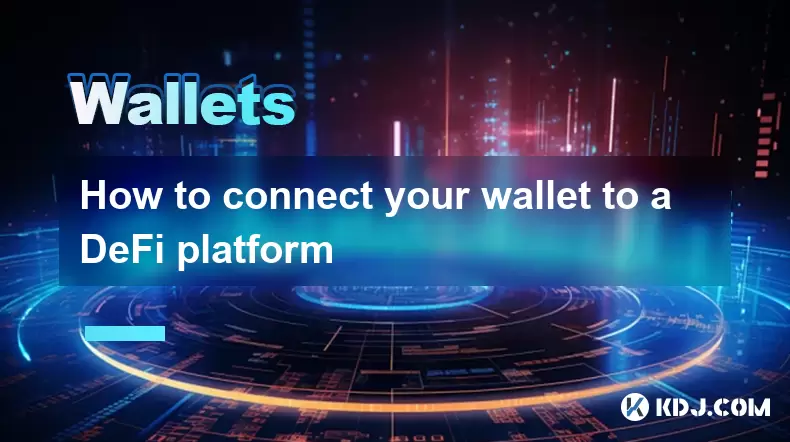
How to connect your wallet to a DeFi platform
Aug 13,2025 at 11:36am
Understanding Wallet Compatibility with DeFi PlatformsBefore connecting your wallet to any DeFi platform, it's essential to ensure your wallet is comp...

How to wrap Ethereum (wETH) in MetaMask
Aug 13,2025 at 11:36am
Understanding Wrapped Ethereum (wETH)Wrapped Ethereum (wETH) is a tokenized version of native Ethereum (ETH) that conforms to the ERC-20 standard, ena...

How to manage your portfolio in Exodus wallet
Aug 08,2025 at 10:07pm
Understanding the Exodus Wallet InterfaceThe Exodus wallet is a non-custodial cryptocurrency wallet that supports a wide range of digital assets. When...

How to manage your portfolio in Exodus wallet
Aug 13,2025 at 11:35am
Understanding the Exodus Wallet InterfaceThe Exodus wallet is a non-custodial cryptocurrency wallet that supports a wide range of digital assets. Upon...

How to reset your MetaMask password
Aug 08,2025 at 01:28pm
Understanding the MetaMask Password Reset ProcessMany users confuse the MetaMask password with the seed phrase or private key, but they serve differen...

How to use WalletConnect with Trust Wallet
Aug 13,2025 at 01:07am
What Is WalletConnect and Why It Matters for Trust Wallet UsersWalletConnect is an open-source protocol that enables secure communication between dece...

How to connect your wallet to a DeFi platform
Aug 13,2025 at 11:36am
Understanding Wallet Compatibility with DeFi PlatformsBefore connecting your wallet to any DeFi platform, it's essential to ensure your wallet is comp...
See all articles

























































































